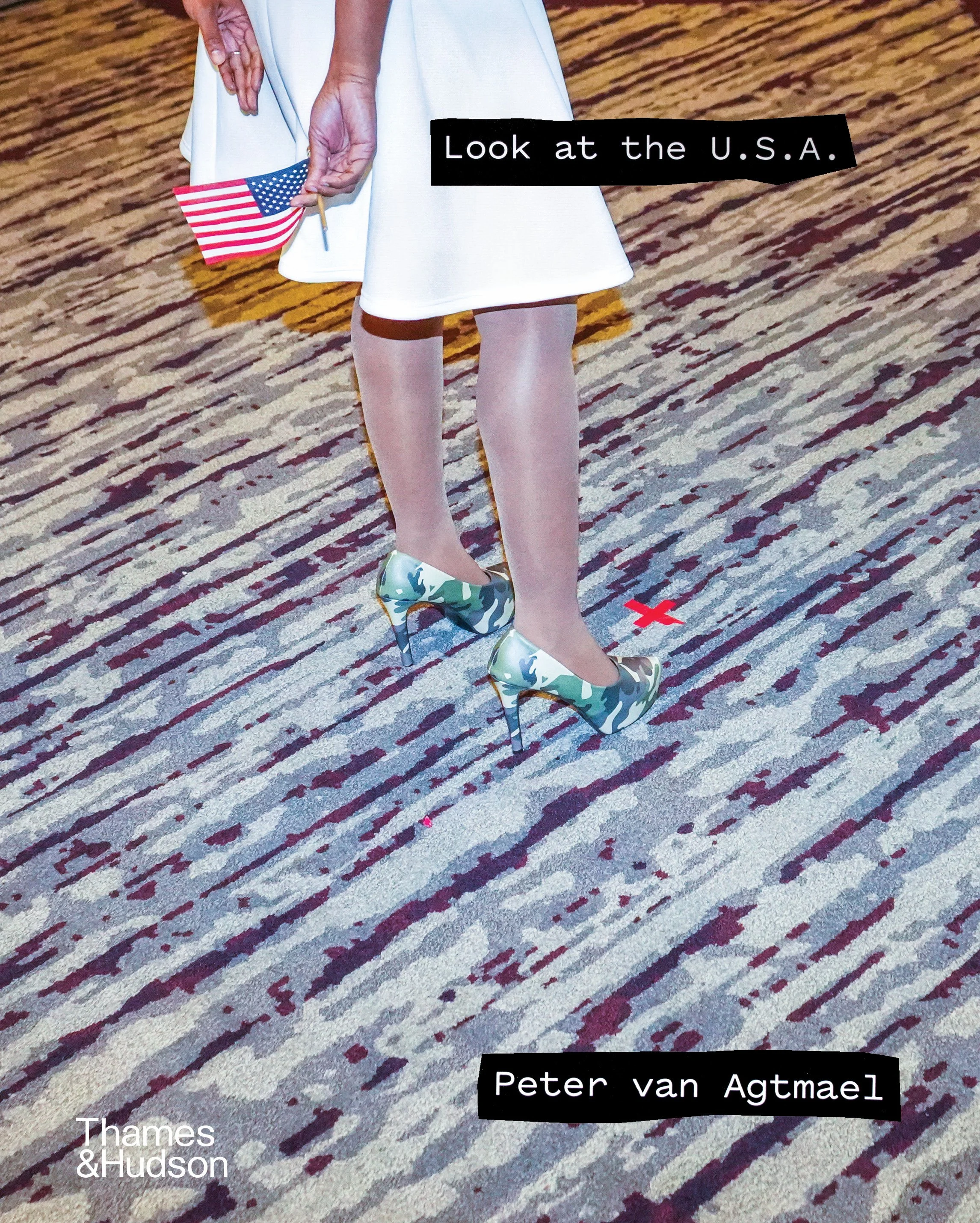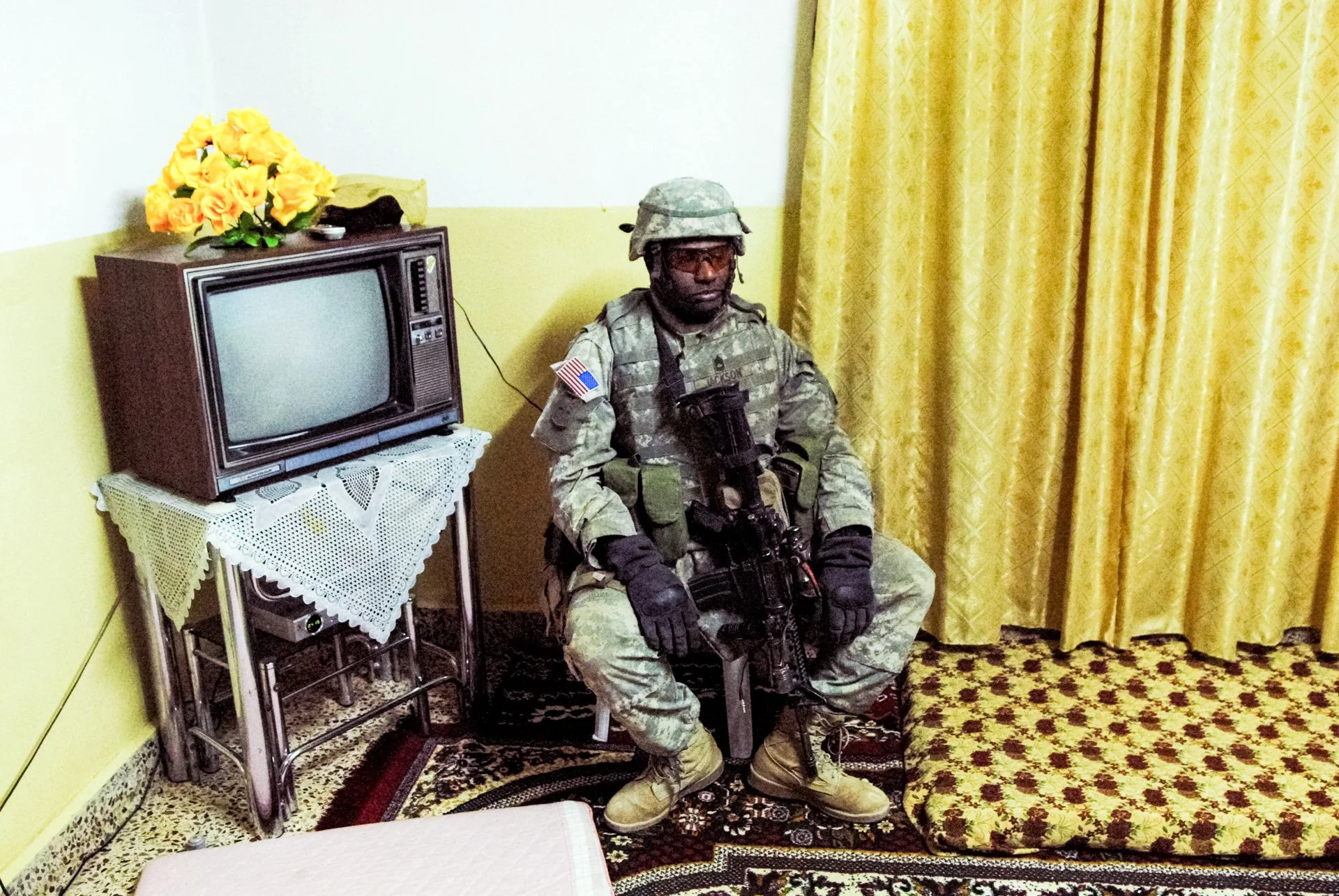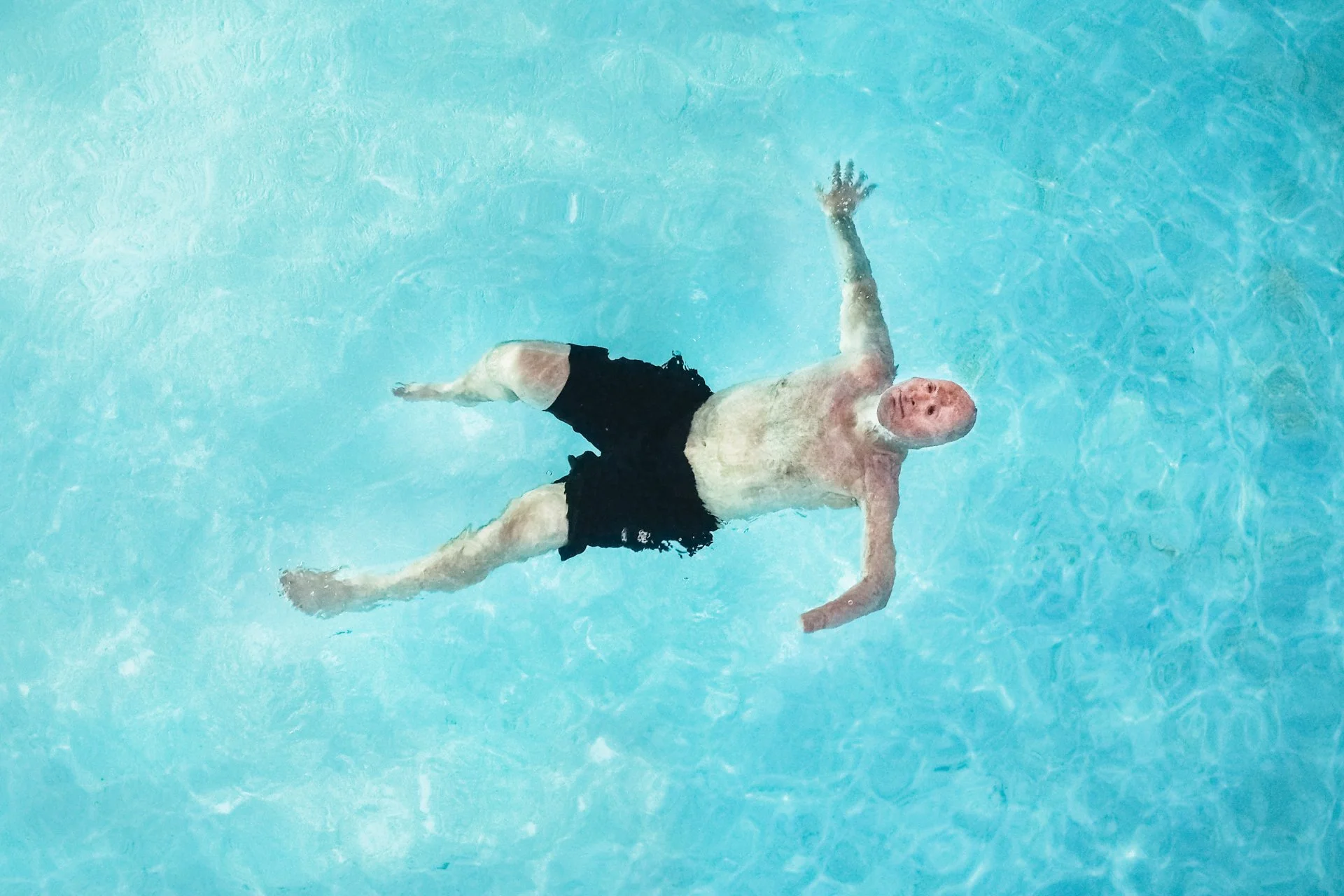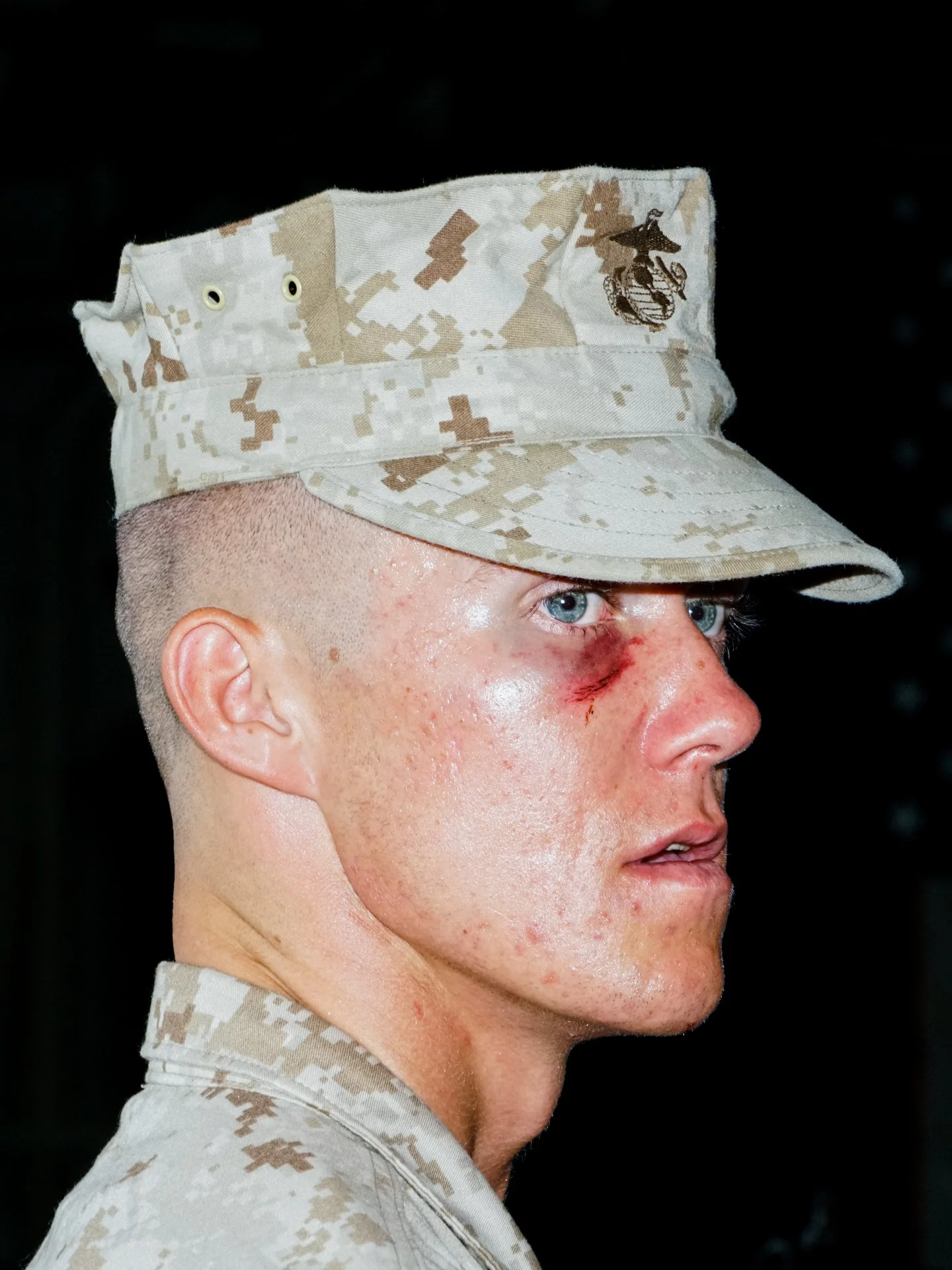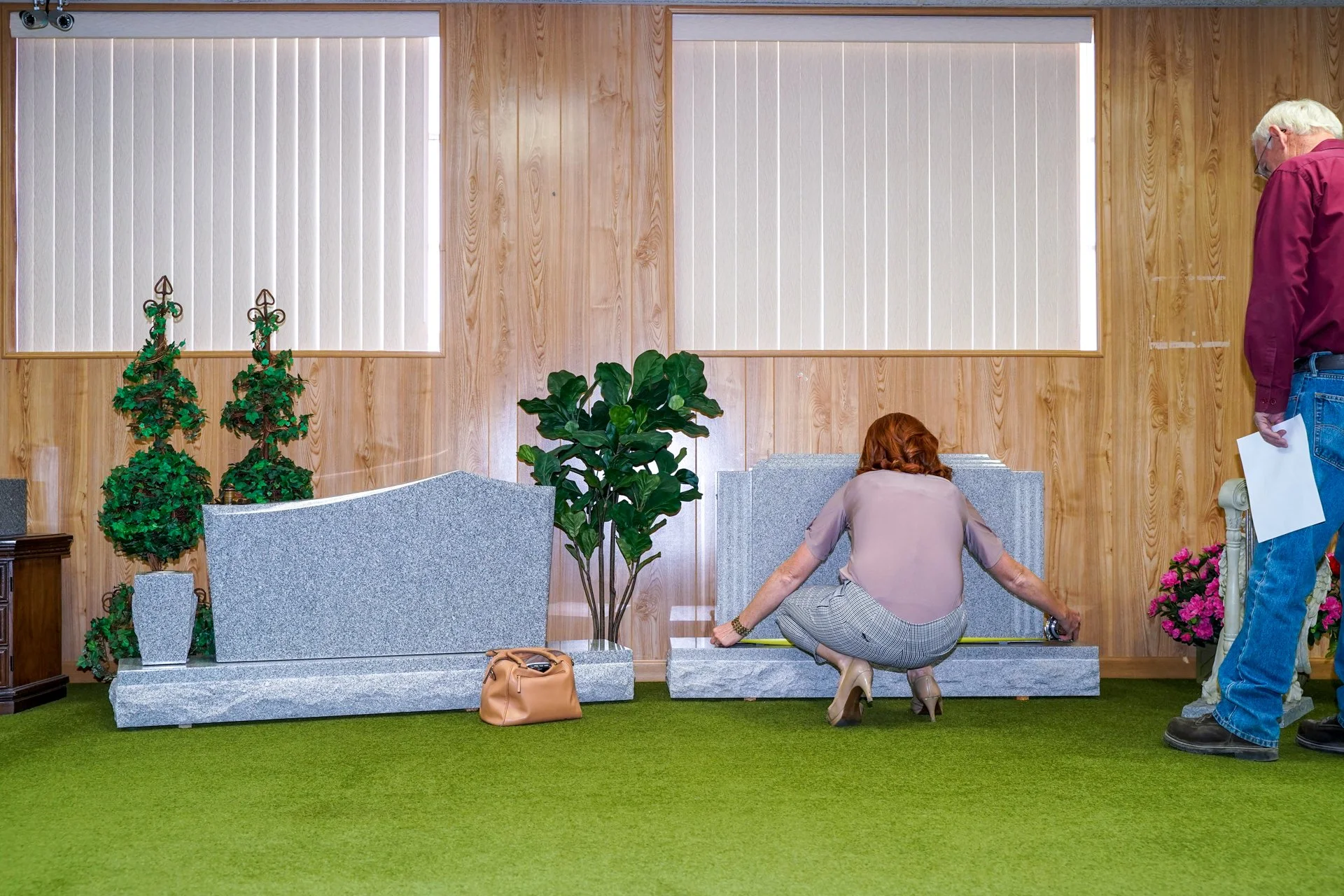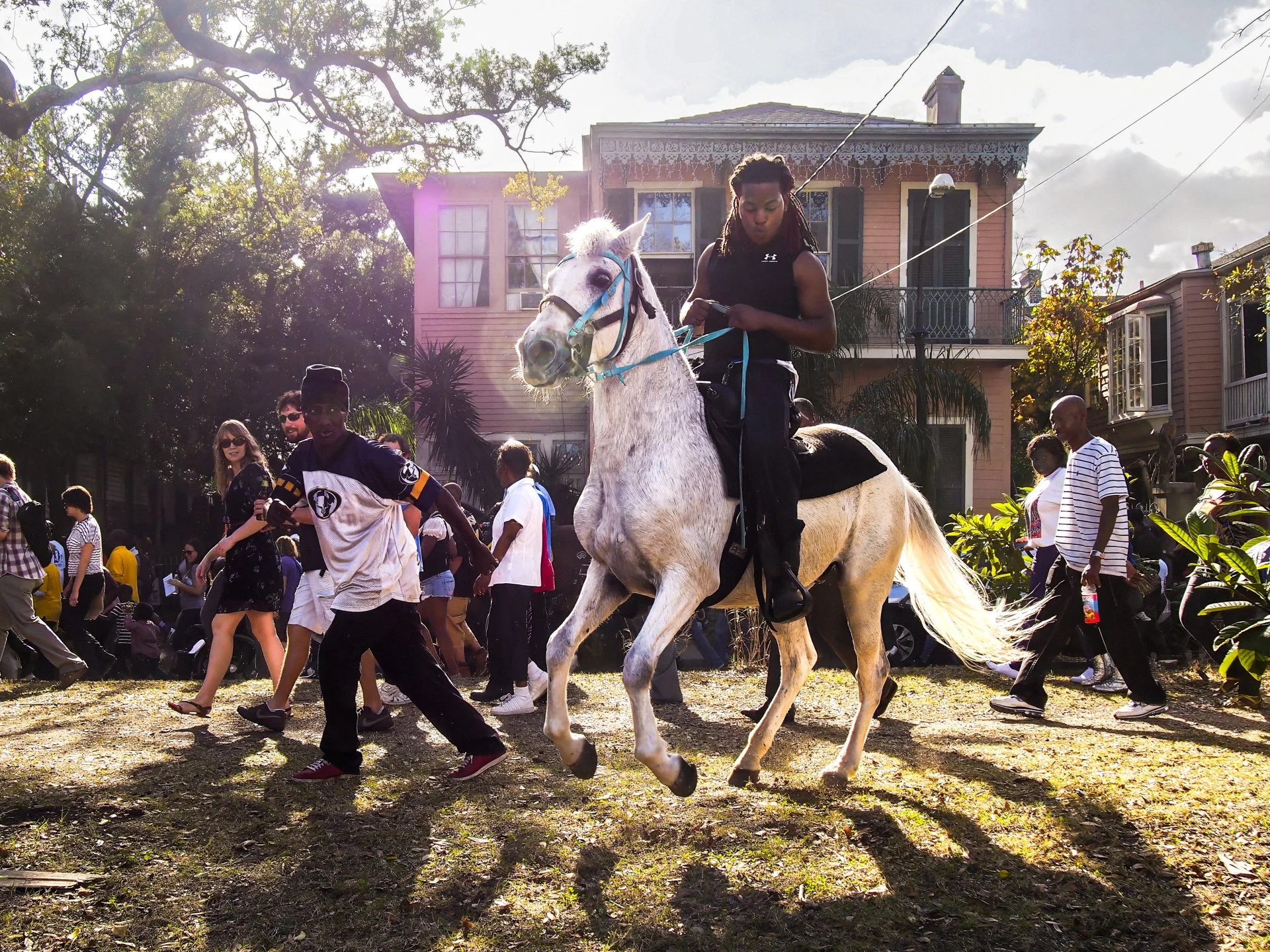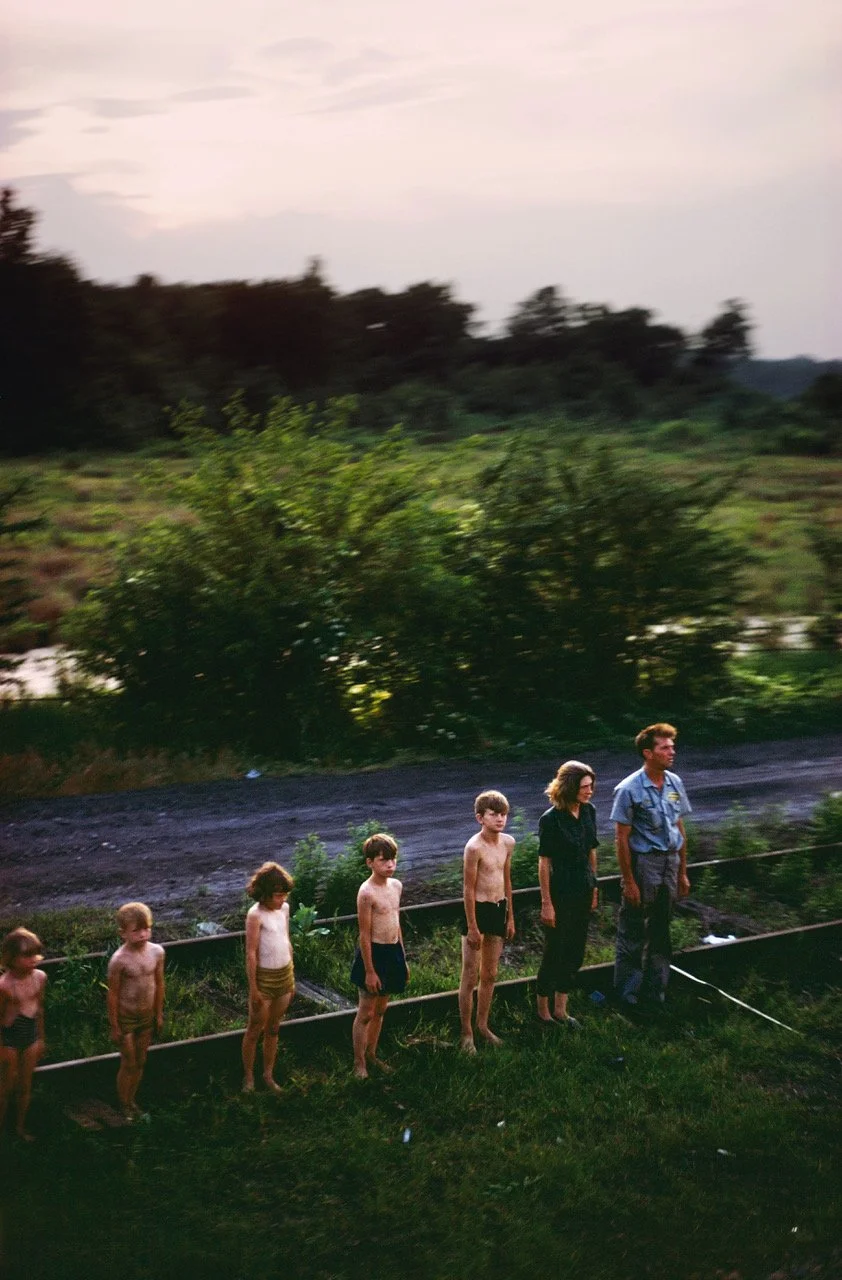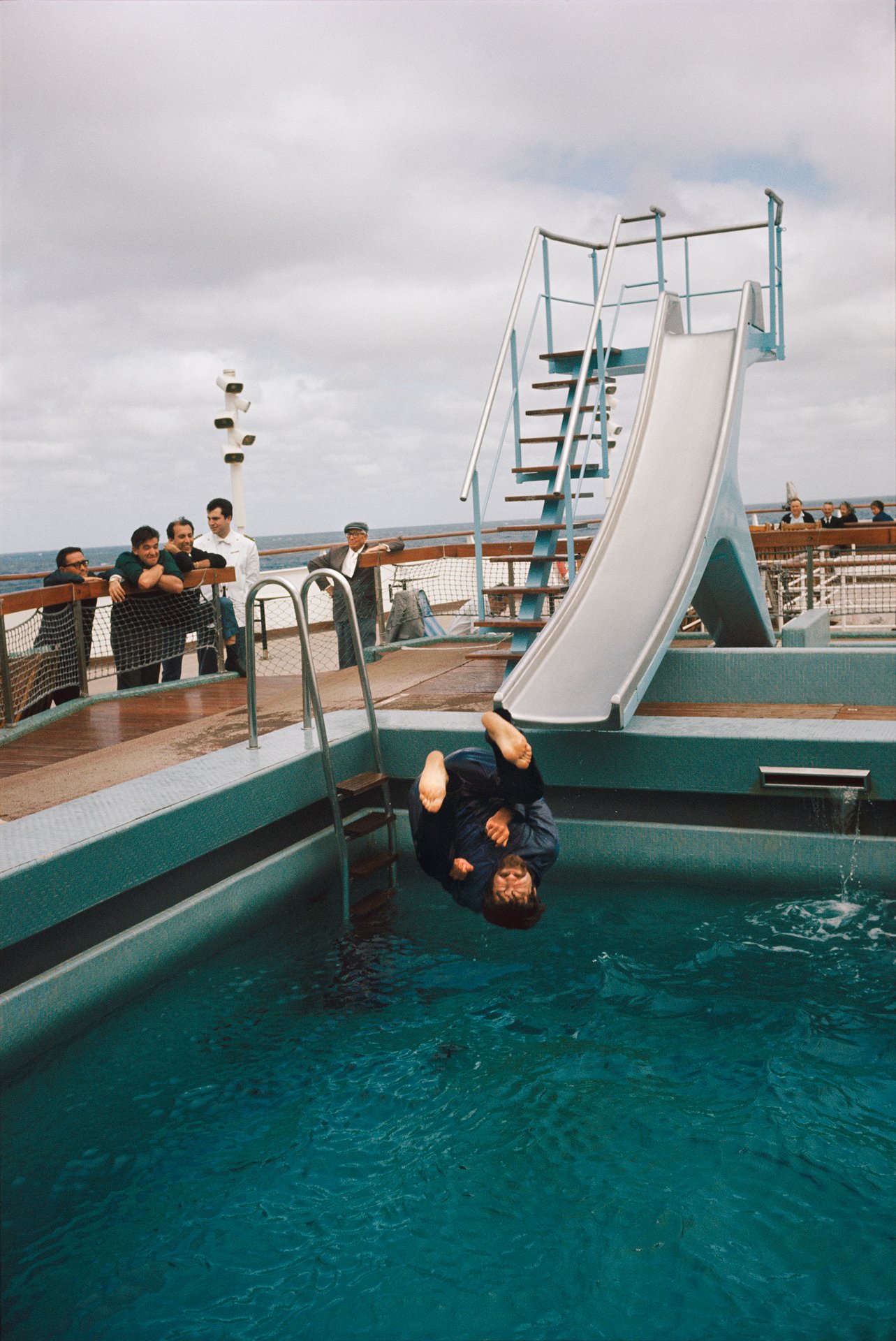Book Review: Look at the USA: A Diary of War and Home
Courtesy of Thames & Hudson
Written by: Alexander Loukopoulos
Peter Van Agtmael is not afraid to admit to the seduction of war. Especially in America, where every era of history is marred by violence either at home or abroad, it is no secret our nation continually defines itself in terms of what it disguises: conquest as freedom, imperialism as peacekeeping, and blind faith as patriotism. In his book, Look at the USA: A Diary of War and Home, Agtmael chronicles a post-9/11 America and the uncanny allure that it proposes to him as both an outcast and romantic, starting from his youth as the grandson of a World War II veteran. Despite his wide-eyed beginnings, two decades of visceral and unsettling; but sometimes charming and reaffirming photography have forced him to put into question his art form and role in American society.
© Peter van Agtmael/Magnum Photos
Night raid. Rawa, Iraq, 2006
With juxtaposition as his weapon of choice, Agtmael arms himself from the jump. Like soldiers ambushed on patrol, viewers are instantly disoriented by the inescapable contradiction that weaves through Agtmael’s work. A dissatisfied soldier sits in the corner of a peaceful living area. A heavily-scarred man floats blissfully in crystal-blue waters. Agtmael constantly reminds us that contradiction is everywhere, much like in the country he seeks to understand on a dangerously intimate level. No territory is safe, however inviting it may seem. As viewers, we learn the only way to disarm the land mine we have found ourselves standing on is to turn the page.
© Peter van Agtmael/Magnum Photos
Bobby Henline. Houston, Texas, 2013
But we might not always find what we seek on the other side. As Agtmael offers anecdotes from his personal life throughout Look at the USA: A Diary of War and Home, he often remarks how he is constantly drawn back to the action of his work; despite the toll it takes on his well-being. As a boy, Agtmael’s fascination with the military was founded on the belief that the war in Iraq was a clean battle between good and evil. But experience has taught him that reality is nowhere near as distinguished; a realization exemplified by the handsome service member whose slightly gaping mouth and widening gaze suggest someone on the verge of an epiphany: the path ahead may not be as straightforward as I thought.
© Peter van Agtmael/Magnum Photos
Fleet Week, Arms Fair. Washington DC, 2018
So, not surprisingly, Agtmael finds no solace after he leaves the battlefield. Instead, he finds that the shortcomings of his country inevitably exist within him and his fellow citizens. Agtmael acknowledges that a post-9/11 America nurtures conflict within its borders as well. As he documents the election of Donald Trump, fraught race relations, the COVID-19 pandemic, and America’s withdrawal from Afghanistan, it seems as though the United States of America paints itself as a country hell-bent on its own demise, a nation closed-in, shut out from the light, preparing its headstone.
© Peter van Agtmael/Magnum Photos
Jennie Taylor choosing a headstone for her husband Brent, who was killed by an Afghan soldier in an insider attack. North Ogden, Utah, 2019.
Yet these rising tensions serve as the catalyst for every photograph found in this book. Agtmael’s critics have pointed to the fact that not every individual he photographed had given him their consent. Agtmael has made relative peace with this moral quandary by choosing not to let a powerful moment pass if he can help it; because he knows that the answers to his questions exist within the chaos. The instances of sense he captures are the windows through which the true nature of our country can be observed. Running head first into danger becomes the only option for a man eager to deconstruct the America he once admired. Such constitutes the eroticism of conflict that he has experienced all too well.
© Peter van Agtmael/Magnum Photos
A Second Line parade. New Orleans, Louisiana, 2012



